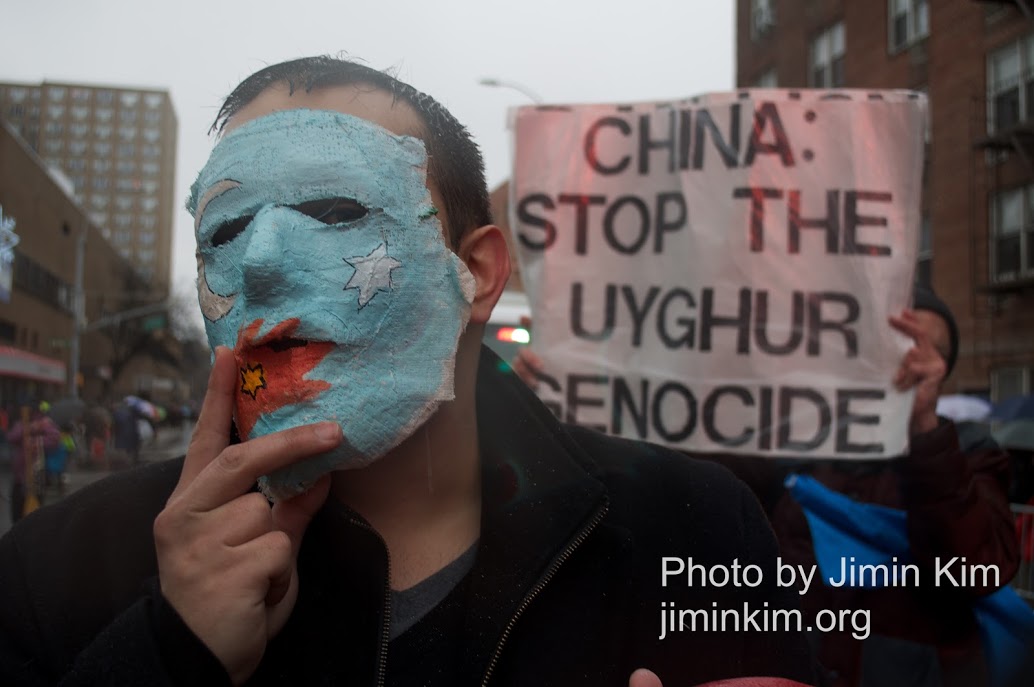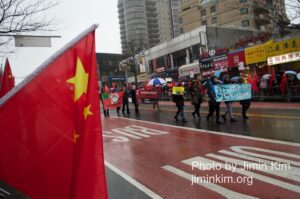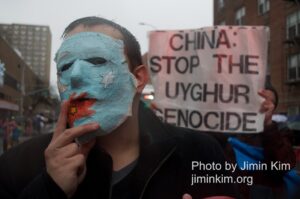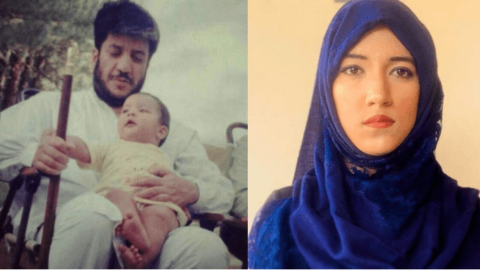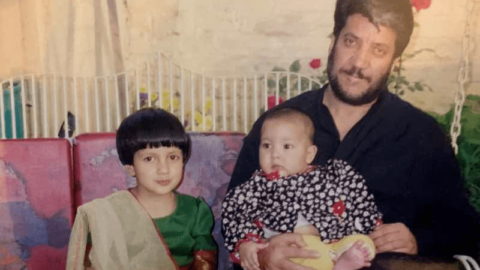By Tazeen Hasan Shah, also called the “Nelson Mandela of Kashmir”, is detained for 34…
The CCP: Fear, Infection and Totalitarian Power
As I write this, pandemic disease is spreading much more quickly than expected, with possibly 100,000 affected. Chinese authorities have now officially named the infection “novel coronavirus pneumonia” or NCP” but its efforts to contain the infection may actually worsen the crisis.
Media has reported a lockdown of unprecedented scope affecting 56 million people in Hubei Province. But this came too late, as five million people had already fled Wuhan and the surrounding area. But setting up blockades may even make the situation worse, by exacerbating shortages of medical supplies, especially impacting vulnerable communities like the Uyghur.
Michael T. Osterholm, director of the Center for Infectious Disease Research and Policy at the University of Minnesota, has suggested that China’s approach to the crisis could easily “backfire,” comparing it to the so-called cordons sanitaires that were imposed to seal off swaths of West Africa during the 2014-2016 Ebola epidemic. Those cordons left people starving and spurred violent uprisings…“If you wanted to create the perfect mixing vessel for a coronavirus,” Dr. Osterholm said, “you’d create the emergency rooms in Wuhan right now.”
Authorities have been ordering extensive house-to-house searches, rounding up the sick and warehousing them in enormous quarantine centers. International experts have said that concentrating large numbers of sick people together in crowded, dormitory-like facilities would create conditions ripe for spreading a range of infectious diseases.
Obviously, the current Chinese Communist Party leadership favors extreme, top down interventions. To ensure complete loyalty after a small separatist movement was formed in the Xinjiang Autonomous Region (East Turkestan), it has rounded up between one and three million Uyghur Muslims and housed them in forced labor camps in the Xinjiang region. No one knows exactly how many are imprisoned, except for the authorities who have created a surveillance state that closely monitors every move made by the local population both inside and outside the camps.
On February 5th, The Diplomat newspaper reported that, “The Chinese government has confirmed at least 32 cases of coronavirus in the Uyghur region, but the actual number is likely much higher due to the communication blackout that is central to China’s mass detention and surveillance campaign in East Turkestan.”
The bureaucratic mindset that builds command and control systems is not “confined” to the Chinese Communist Party. The police state of the “Pan-opticon” is a creeping global trend. However, the CCP penchant for secrecy and control is extreme. So far, besides convening press conferences with the World Health Organization (WHO), Chinese authorities have refused help from the United States and other international health agencies in fighting the virus. Medical workers have been directed to mobilize into round-the-clock shifts to visit each home in Wuhan, check the temperature of all residents and interview close contacts of any infected patients.
According to the Washington Post, “Beijing authorities Friday said that lying about having contact with someone with coronavirus contacts could be punishable by death, that failure to report symptoms like fever could lead to criminal charges, and that people who are not wearing masks could be detained. “If found to have endangered public safety with dangerous means, those with such behavior … could be arrested and sentenced to three years or less of imprisonment for lighter cases, and 10 years’ or more in jail, life sentence, or even death sentence in severe cases,” said Li Fuying, director of the Beijing Judicial Bureau.
Concentrating so many sick people together is sure to be a death sentence for many, even many caregivers. Concentration camps become death camps. A new study published in the Journal of the American Medical Association, carried out by doctors from Zhongnan Hospital of Wuhan University, found that 41 percent of patients in Wuhan contracted the coronavirus while in hospital.
While any feeling person must be moved by the plight of all those affected, urgent questions arise regarding the condition of the Uyghur who are already detained in camps, traumatized and hidden away.
Meanwhile, in Hangzhou, the capital of virus-stricken Zhejiang province, authorities have banned over-the-counter sales of fever and cough medications to make sure those potentially infected with coronavirus will seek medical attention in hospitals rather than trying to treat themselves.
In China, the communist state insists it takes priority over the family unit, which in the case of the Uyghur, it seeks to destroy. But now the rest of the nation is also paying the price of centralized, autocratic government.
In the mid-1940s, after Nazi death camps were liberated, and the world woke up to the shocking reality of the Holocaust, French writer Albert Camus began his profound novel on the human condition in the midst of crisis. Entitled “The Plague”, the story concerns the viral spread of infection as a metaphor for the spread of fascist ideology. At the current moment, as autocrats and nationalists work to demonize minorities and to build walls to keep them out, as populism and xenophobia keep us imprisoned in an atmosphere of fear and suspicion, democracy and justice no longer seem secure. We are at a moment of existential crisis.
To restore a wise and compassionate pluralism, let us hope that millions will not have to die, like the brave whistleblower doctor Li Wenliang, like so many health professionals, like so many Uyghur and Tibetan and religious minorities.

